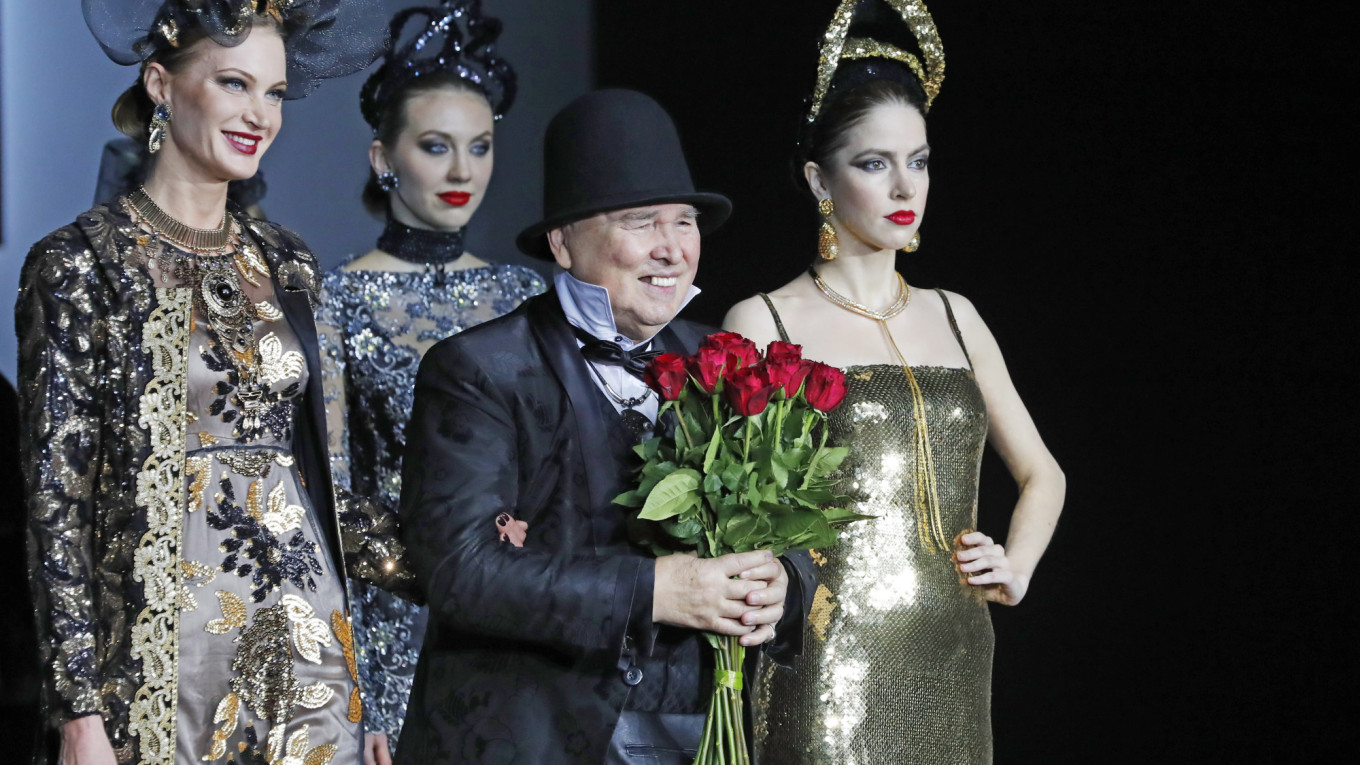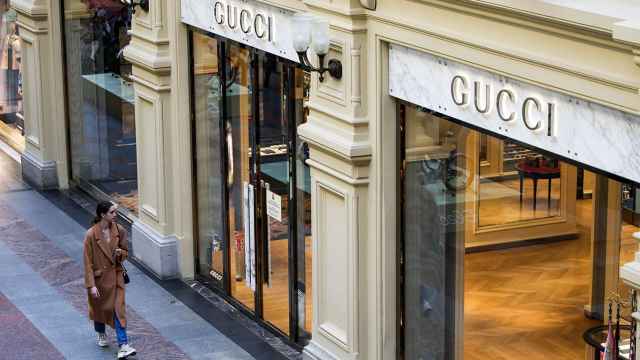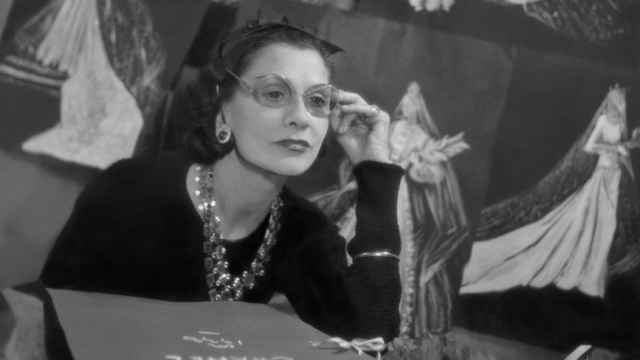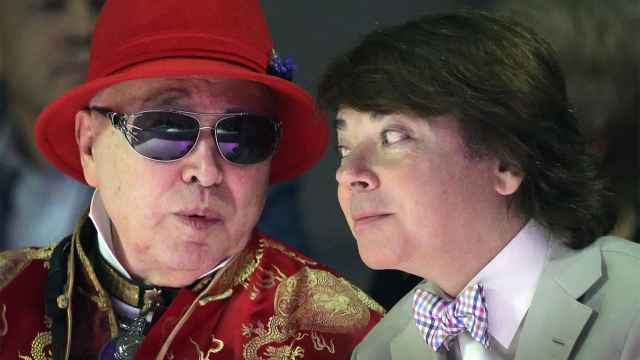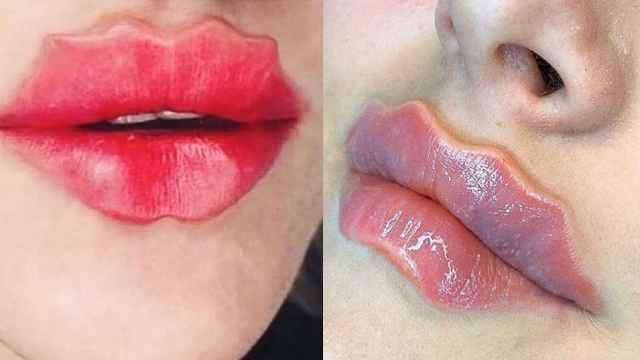Russian fashion designer Viacheslav "Slava" Zaitsev, dubbed the "Soviet Christian Dior," has died at the age of 85, his fashion house told AFP Sunday.
Confirming Russian media reports, a spokeswoman added that when Zaitsev had celebrated his birthday in March with friends, "we could already see he was very, very, weak."
"The couturier Viacheslav Zaitsev has died," Russian state channel Perviy Kanal reported, paying tribute to a man who "dictated Soviet and Russian fashion for decades, an innovator who wasn't afraid of bold experiments."
"It's a great loss for the world of international fashion," the RIA Novosti news agency quoted Russian stylist Sergei Zverev as saying.
Russia's most famous fashion designer, Zaitsev achieved global success with bright dresses adorned with the flower patterns found on traditional Russian shawls.
From a modest childhood in Ivanovo, a town of 400,000 people to the northeast of the capital, his career took him to the catwalks of Paris, New York and Tokyo.
The French press in the 1960s dubbed him the "Soviet Christian Dior."
Watched closely by the KGB because of his contacts with Western designers and his flamboyant character, Zaitsev was initially refused permission to leave the Soviet Union and his first collections were shown abroad without him.
In 1962, Zaitsev's first collection of clothes — a uniform for female workers that featured skirts with the flower patterns of traditional Russian shawls and multicoloured boots — was rejected by Soviet authorities.
"The colors were too bright and contrasted with the greyness of Soviet everyday life, where an individual should not differ from the rest of society," Zaitsev said in an interview with AFP in 2018.
But the collection, nonetheless, attracted international attention. In 1963, French magazine Paris Match became the first Western media outlet to describe Zaitsev as a pioneer of Soviet fashion.
Celebrity clients
Born into a poor family with a mother who worked as a cleaner, he initially was barred from attending a top-flight university because his father, taken captive by the Nazis during World War II, had, like other former prisoners-of-war, been labeled an "enemy of the people" and sentenced to 10 years in a labor camp.
"When I was a child, my mother taught me embroidery so I wouldn't roam the streets without purpose," he told AFP.
"In the evenings I would pick flowers with girls on Leninskiy Prospekt to draw them and recreate them in embroidery. That's how I began my adventure in art."
He studied at a vocational college until the age of 18 and then went on to the unglamorous Moscow Textile Institute.
"During my studies, I lived with a family whose children I looked after. The apartment was tiny and I slept on the floor under the table," he recalled.
Later in life, between 2007 and 2009, he presented a popular television show called "The Verdict of Fashion," in which stylists dressed participants in the latest street looks.
He counted several Russian movie stars, singers and the ex-wife of President Vladimir Putin, Lyudmila, among his clients.
A Message from The Moscow Times:
Dear readers,
We are facing unprecedented challenges. Russia's Prosecutor General's Office has designated The Moscow Times as an "undesirable" organization, criminalizing our work and putting our staff at risk of prosecution. This follows our earlier unjust labeling as a "foreign agent."
These actions are direct attempts to silence independent journalism in Russia. The authorities claim our work "discredits the decisions of the Russian leadership." We see things differently: we strive to provide accurate, unbiased reporting on Russia.
We, the journalists of The Moscow Times, refuse to be silenced. But to continue our work, we need your help.
Your support, no matter how small, makes a world of difference. If you can, please support us monthly starting from just $2. It's quick to set up, and every contribution makes a significant impact.
By supporting The Moscow Times, you're defending open, independent journalism in the face of repression. Thank you for standing with us.
Remind me later.


